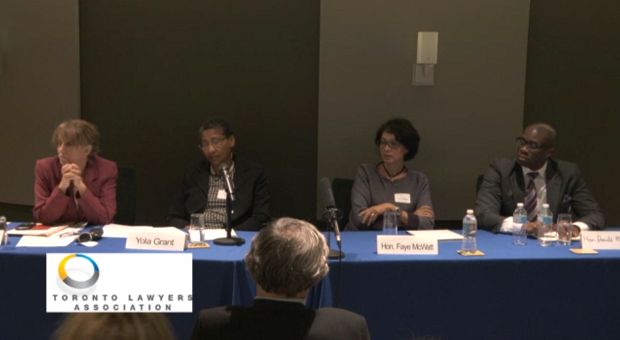
To purchase this video please click “Add to Cart”.
Login to watch this video if you have a subscription. Learn more about subscriptions.The practice of law is rife with biases. From the instant credibility placed on authority figures to a myopic theory of liability, no one is immune from the subtle influences that exist all around us. You will also hear from experienced lawyers and judges on how they persuade, negotiate and decide in light of cognitive biases.
In this thought-provoking program, you will satisfy your annual Professionalism Hours and:
(15 minutes/judge = 60 minutes)
Donald F. McLeod, Co-Chair (Founding Partner, The McLeod Group, Barristers and Solicitors) has been an accomplished litigator for over a decade with a keen interest in community and social justice issues. The McLeod Group had a well-known and respected reputation as one of the leading boutique criminal, administrative and human rights firms in Toronto.
Donald McLeod has argued cases such as R v. Golden successfully in the Supreme Court of Canada in 1999 intervening for the African Canadian Legal Clinic. In 2009, the case of R v. Douse was a landmark case, which revolutionized the traditionally used racial vetting process to now take into consideration non-conscious racism. In 2005, McLeod argued R v. Hamilton and Mason in the Ontario Court of Appeal.
October 2, 2014 marked a new chapter as Justice Donald McLeod was appointed to the Ontario Court of Justice, a confirmation that he is doing good work.
Donald remains very active in the community as well as conducting seminars to various legal conferences and community meetings. Notable seminars included a presentation with Paul Burstein to the Federal Crown’s office with respect to Gladue court and section 718 ccc (sentencing applications); presented with Madame Justice Feldman (Ontario Court of Appeal) at the Provincial Judges Conference in London, Ontario with respect to Sections 8, 9, 10(b) of the Canadian Charter of Rights and Freedoms; and a guest lecturer at Queen’s University Law School in Criminal Advocacy.